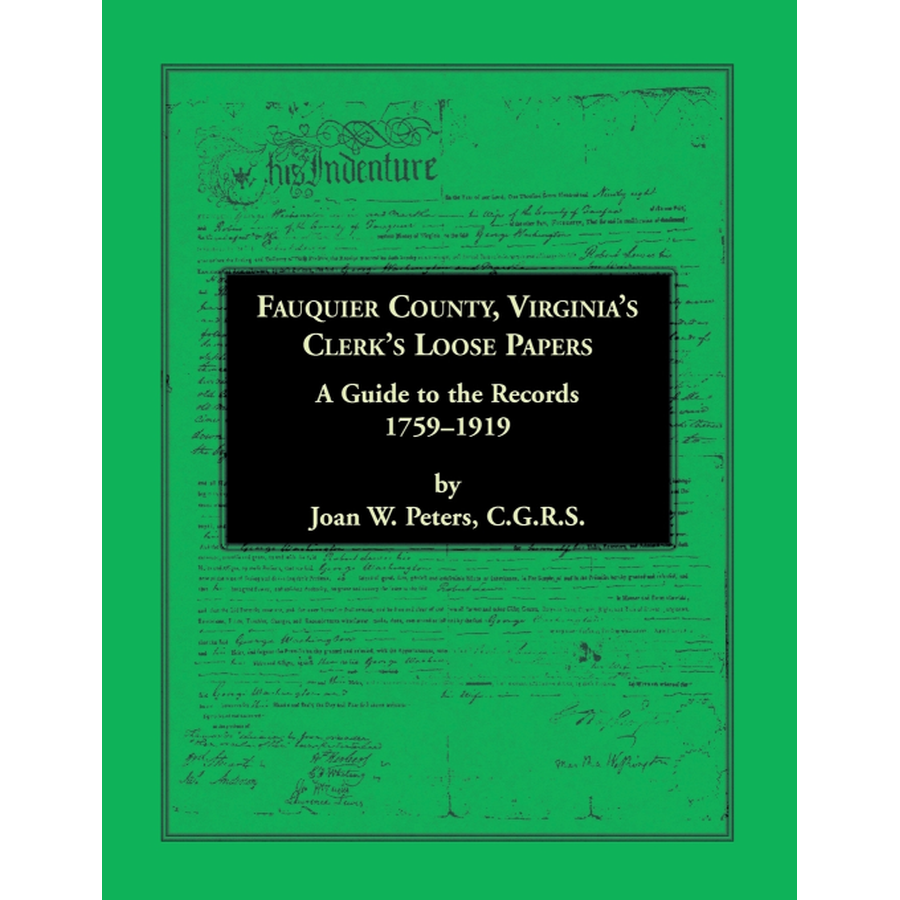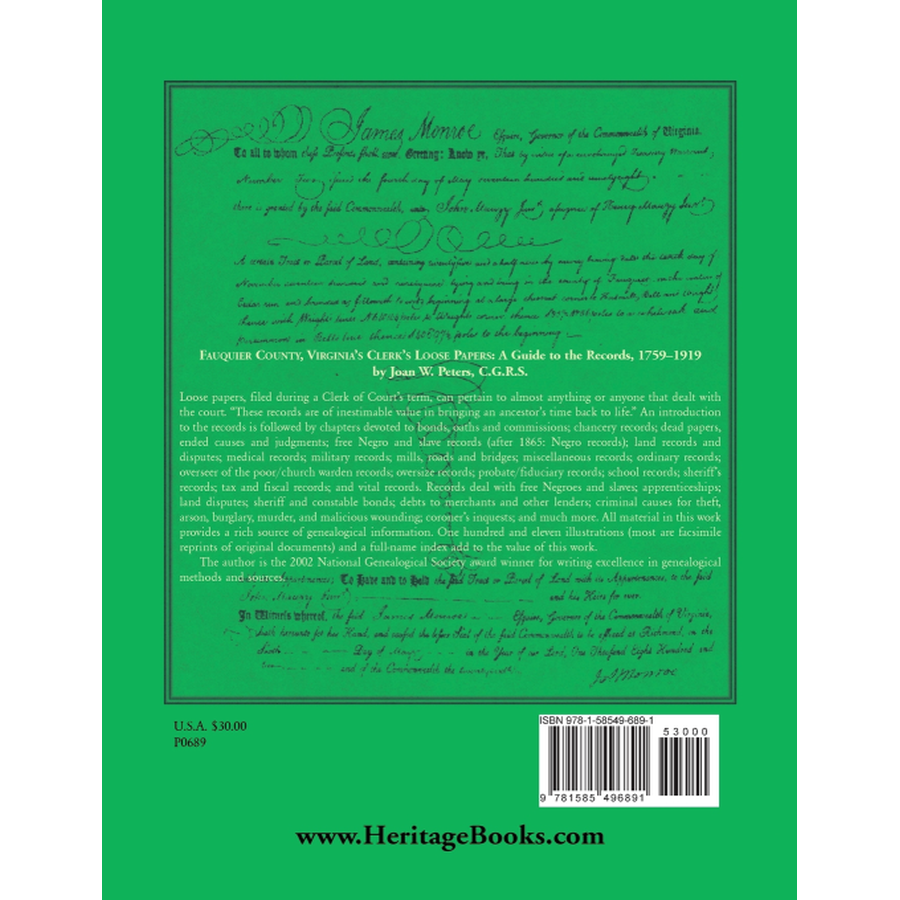Fauquier County, Virginia's Clerk's Loose Papers: A Guide to the Records, 1759-1919
Couldn't load pickup availability
Loose papers, filed during a Clerk of Court's term, can pertain to almost anything or anyone that dealt with the court. "These records are of inestimable value in bringing an ancestor's time back to life." An introduction to the records is followed by chapters devoted to bonds, oaths and commissions; chancery records; dead papers, ended causes and judgments; free Negro and slave records (after 1865: Negro records); land records and disputes; medical records; military records; mills, roads and bridges; miscellaneous records; ordinary records; overseer of the poor/churchwarden records; oversize records; probate/fiduciary records; school records; sheriff's records; tax and fiscal records; and vital records. Records deal with free Negroes and slaves; apprenticeships; land disputes; sheriff and constable bonds; debts to merchants and other lenders; criminal causes for theft, arson, burglary, murder, and malicious wounding; coroner's inquests; and much more. All material in this work provides a rich source of genealogical information. One hundred and eleven illustrations (most are facsimile reprints of original documents) and a full-name index add to the value of this work. The author is the 2002 National Genealogical Society award winner for writing excellence in genealogical methods and sources.
Joan W. Peters
(2001), 2012, 8.5" x 11", paper, index, 218 pp.
ISBN: 9781585496891
101-P0689

